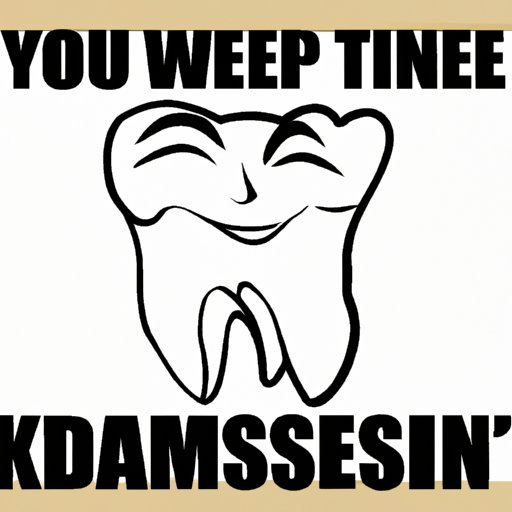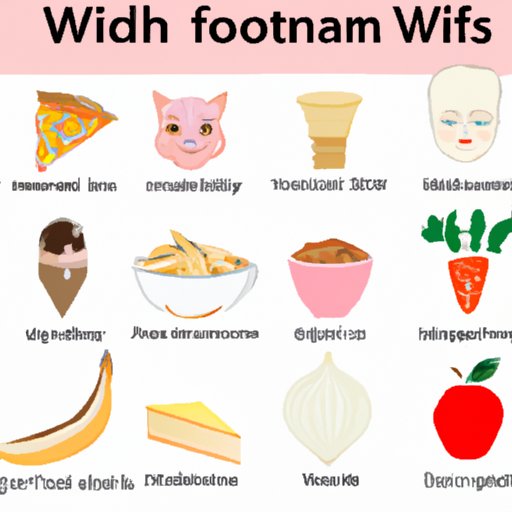
I. Introduction
Wisdom teeth can cause dental complications that require their removal. Many people, however, are unsure whether their wisdom teeth should stay. The decision to remove them is not always straightforward and depends on various factors, including genetics and dental health. In this article, we explore the pros and cons of keeping wisdom teeth, debunk common myths surrounding their extraction, and provide information on how to determine whether they need to be removed or not. We also cover alternative solutions to wisdom teeth removal and discuss the role of wisdom teeth in oral health, providing insights into what to expect before and after surgery.
II. Pros and Cons of Keeping Your Wisdom Teeth
Before deciding whether to remove your wisdom teeth, you should first weigh the pros and cons of keeping them.
A. Advantages of Keeping Your Wisdom Teeth
One advantage of keeping your wisdom teeth is that they add an extra set of molars to your mouth, which can aid in chewing and oral function. Intact wisdom teeth can also help maintain the structure, shape, and alignment of your other teeth.
B. Disadvantages of Keeping Your Wisdom Teeth
Retaining wisdom teeth can result in serious dental problems such as tooth decay, gum infection, or cysts. If complications arise, these issues may require expensive and painful dental procedures.
III. Myth vs. Reality: The Truth About Wisdom Teeth
There is an ongoing debate about whether wisdom teeth should be removed or not. This section debunks common misconceptions surrounding wisdom teeth extraction as well as exploring why wisdom teeth serve an essential role in dental health.
A. Misconception of Whether Wisdom Teeth Need To Be Removed
Many people assume that wisdom teeth should be removed automatically. Although this is often the case, there are exceptions to the general rule. For some people, wisdom teeth don’t cause any problems, while for others, they can cause complications. The decision to remove wisdom teeth should be made on a case-by-case basis following personalized dental care.
B. Purpose of Wisdom Teeth
Wisdom teeth were vital when our ancestors relied on rougher diets and needed additional molars to chew their food. Over time, our jaws have become smaller, resulting in inadequate space for these additional teeth. This is why most people experience problems with their wisdom teeth.
IV. How to Know If You Should Get Your Wisdom Teeth Removed?
There are situations in which wisdom teeth should be removed. This section explains what symptoms indicate the need for extraction and situations that require it.
A. Symptoms that Indicate the Need For Removal
Generally, the following symptoms may signify the need to remove wisdom teeth:
- Pain and discomfort
- Impacted wisdom teeth
- Infections or other dental problems
B. Situations that Require Wisdom Teeth Removal
If wisdom teeth cause overcrowding, they may need to be extracted. Removal may also be considered as a preventative measure to avoid future dental complications.
V. Alternatives to Wisdom Teeth Removal
If you are unsure about undergoing wisdom teeth removal or would like to consider alternative solutions, this section provides helpful information about partial extractions and preventative care and dental tools that can manage discomfort.
A. Partial Extractions and Preventative Care
Partial extractions are advised when the tooth is partially erupted, causing gum inflammation and infection. Preventative care steps can also help to improve dental health and avoid future complications.
B. Use Of Dental Tools to Manage Discomfort
Home remedies for wisdom tooth pain relief include using an ice pack and rinsing with salty water or over-the-counter pain relievers. If the pain persists or worsens, seek professional advice.

VI. Foods to Eat and Foods to Avoid with Wisdom Teeth
Your diet can impact the healing process after wisdom teeth extraction. This section provides suggestions for foods that promote healing and foods to avoid that could worsen discomfort.
A. Foods That Promote Healing After Wisdom Teeth Extraction
Suggested options include soft, nutrient-dense foods such as mashed potatoes, smoothies, and eggs. These foods are easy to consume and help promote healing after surgery.
B. Foods to Avoid After Wisdom Teeth Extraction
Hard, crunchy, and chewy foods such as chips, nuts, and gum can worsen discomfort and delay healing. Instead, consider alternatives such as steamed vegetables, soups, and applesauce.
VII. Wisdom Teeth Extraction: What to Expect Before and After Surgery
Wisdom teeth removal may involve different types of sedation and pre-surgery preparation. This section covers what to expect during the consultation process before surgery and aftercare during the healing process.
A. Consultation Process Before Surgery
Before undergoing wisdom teeth extraction, you will need to go through a consultation process to determine the best type of sedation and prepare for surgery.
B. Aftercare During the Healing Process
Pain management and proper dental hygiene are essential after wisdom teeth removal. Follow your dentist’s instructions for a smooth and speedy recovery.
VIII. The Role of Wisdom Teeth in Oral Health
Wisdom teeth can cause dental problems such as overcrowding and gum inflammation and infections. This section explores these issues and the benefits of their extraction.
A. Exploring How Wisdom Teeth Can Cause Dental Problems
As mentioned before, wisdom teeth lead to overcrowding, infections, and inflammation. If left untreated, these issues can worsen, leading to severe complications.
B. The Benefits of Wisdom Teeth Extraction
Removing wisdom teeth can minimize the risk of dental complications, improve overall oral health, and enhance your quality of life.
IX. Conclusion
This article provided you with information on the pros and cons of keeping your wisdom teeth, debunked common myths about wisdom teeth extraction, and presented alternative solutions to removal. By following dental care steps and consulting with your dentist, you can determine the best course of action for your oral health needs.
Remember, every individual’s dental health is distinct, and wisdom teeth’s fate depends on personalized care. Understanding the pros and cons of keeping or removing wisdom teeth, your dentist can suggest the best options for your specific case. Call to action, schedule an appointment with your dentist to assess the need for wisdom teeth extraction or determine the best course of action.




